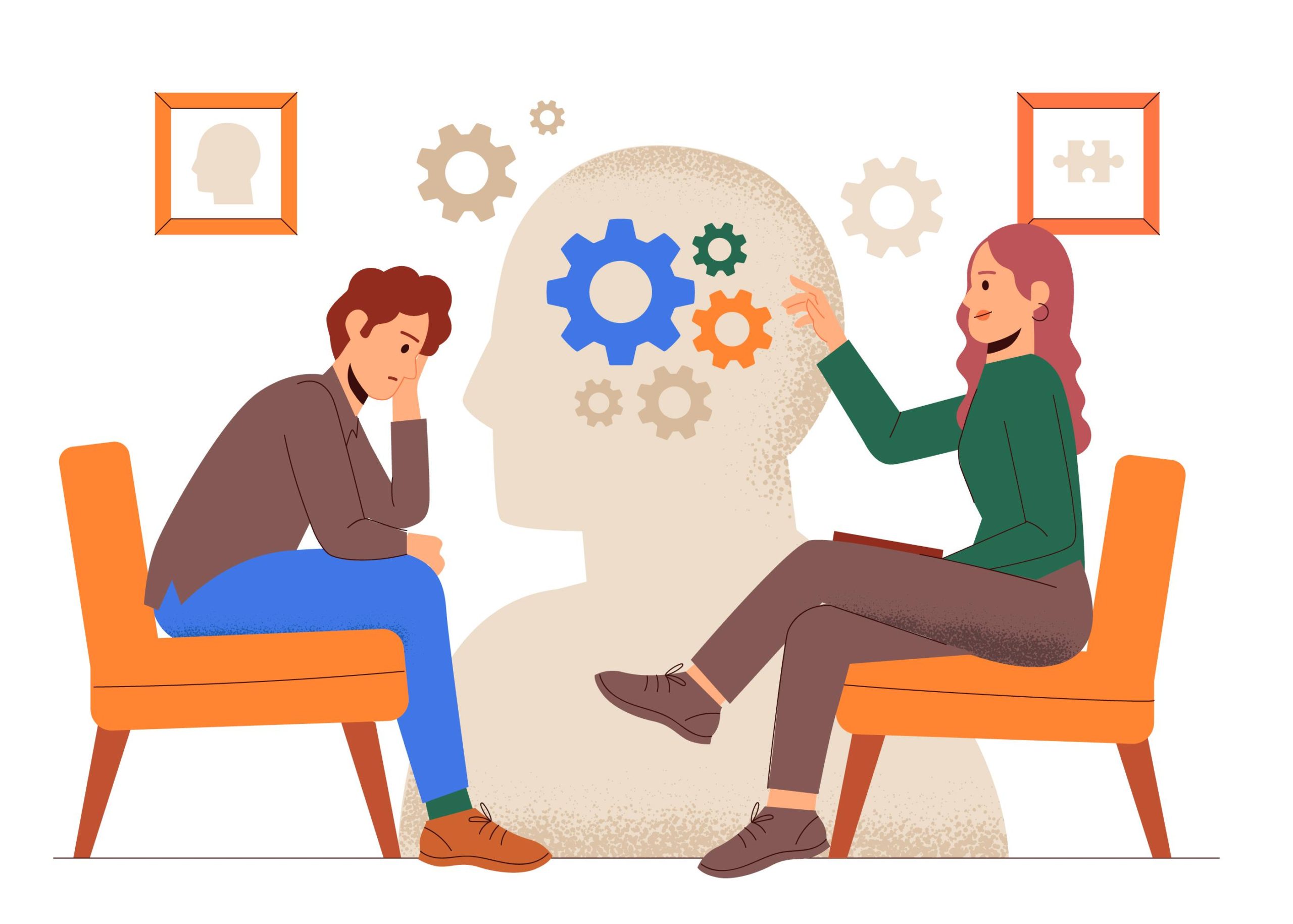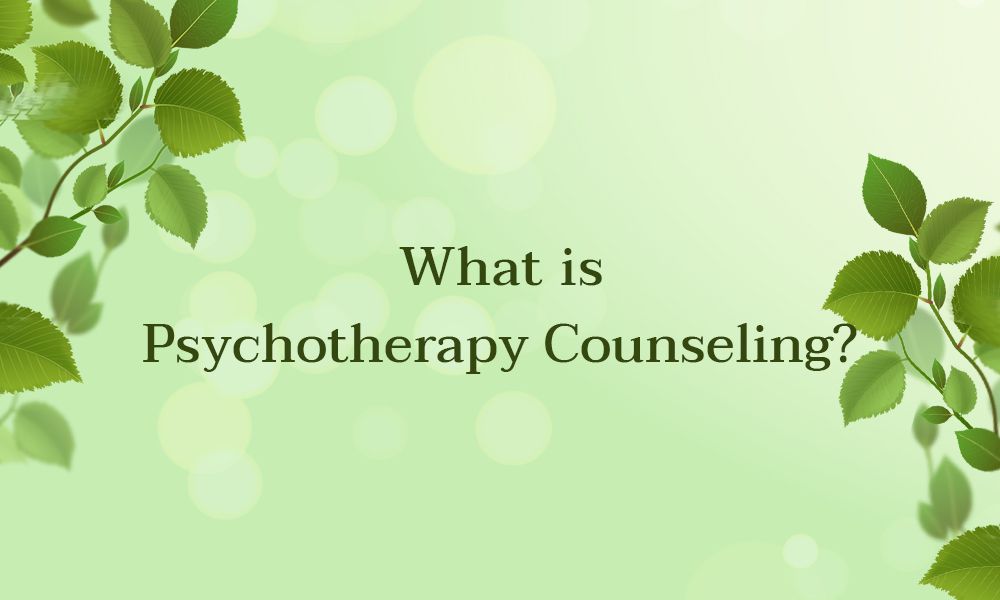- Jofa Tower 5th floor, SB-23, Block 13 C, Main University Rd, Gulshan-e-Iqbal, Karachi.
- +92 322 3746726
- tis@transformation.com.pk
What is psychotherapy counseling?

Side Effects of Psychotherapy for Depression
July 6, 2023
Psychotherapy for Children and Adolescents
July 8, 2023Psychotherapy Counseling
The goal of psychotherapy counseling is to assist patients in resolving their emotional and psychological problems. It entails a cooperative process between a client and a qualified therapist or counselor with the goal of enhancing the individual's psychological well-being and general quality of life.
The therapist offers a safe and supportive atmosphere throughout psychotherapy counseling sessions so the client may speak frankly about their issues, ideas, and feelings. To assist the client in developing an understanding of their emotions, ideas, and behaviors, the therapist uses a variety of techniques and approaches. Exploring past events, spotting patterns, and comprehending the fundamental reasons for the client's problems are frequent steps in this approach.
What distinguishes psychotherapy from counseling and therapy?
Many people use the terms "psychotherapy," "counseling," and "therapy" interchangeably to mean the same thing: talk therapy with a mental health professional to help resolve issues or treat mental health conditions.
Although "therapy" is frequently used as a shortened version of "psychotherapy" (which is a correct substitution), it should be noted that psychotherapy specifically deals with mental, emotional, and behavioral issues. Other forms of therapy, including speech therapy, physical therapy, hydrotherapy, radiation therapy, and many more, are available for a variety of medical issues.
Counseling is typically a brief treatment that targets a specific symptom or situation, such as marital or family issues, whereas psychotherapy is typically a longer-term treatment that attempts to gain more insight into someone's issues or help with a mental health condition. It's acceptable to interchange the two terms.
Who needs psychotherapy?
Numerous people who are struggling with various mental, emotional, and behavioral issues can benefit from psychotherapy. This includes children, adolescents and adults. Sessions in psychotherapy can last a few weeks or months for short-term problems or they can last for many months or years for more complicated situations or long-term conditions.
Some (but not the only) common reasons why people may seek psychotherapy include:
Most of the time, you are in a bad mood.
You're having ongoing problems in your relationships, whether it be with a spouse, a relative, or a work colleague.
You're finding it difficult to manage your stress at work, in your home, or at school.
You've been staying away from social interactions and/or activities.
You experience racing, intrusive, or anxious thoughts.
Your sleeping or eating patterns have changed.
Such bad habits as excessive drinking, drug use, gambling, or other risky behavior are becoming a concern.
Traumatic events like a vehicle accident, the death of a loved one, or a physical or sexual assault have happened to you.
You consistently struggle with poor confidence and self-worth.
Things that you formerly found enjoyable have lost their appeal to you.
You're feeling overwhelmed by life, and it's affecting your mood and daily functioning.
You have the impression that you are unable to control your emotions.

What ailments or problems does psychotherapy aid in treating?
Psychotherapy is a diverse treatment that can assist in the management of a wide range of diseases and concerns. Here are some of the frequent ailments and concerns that psychotherapy can help with (but aren’t limited to) :
Difficulties coping with day-to-day living or with medical issues.
Stress.
Anger.
Physical or emotional trauma.
Problems losing weight or quitting smoking.
Managing an acute or chronic illness such as multiple sclerosis, cancer, stroke, chronic pain, or an autoimmune condition.
Grief and the death of a loved one.
Problems with divorce or relationships.
Problems at work or at home.
Depression, anxiety, bipolar disorder, post-traumatic stress disorder (PTSD), eating disorders, personality disorders, and other mental health issues.
Attention deficit/hyperactivity disorder (ADHD), oppositional defiant disorder (ODD), conduct disorder, and other behavioral problems.
There are various types of psychotherapy, and some may be more effective with specific problems or challenges. To manage your problem, you may use psychotherapy in conjunction with drugs or other therapies.

When should I visit my doctor or a mental health specialist while undergoing psychotherapy?
It is important to consult with your doctor or mental health specialist if you are undergoing psychotherapy and experience any of the following situations:
It is crucial to contact your healthcare practitioner if your symptoms are getting worse or not getting better despite ongoing therapy. They can evaluate your progress, make any required changes to your treatment plan, or look into other choices for treating your disease.
It is important to seek immediate assistance if you are suffering suicidal thoughts, are experiencing a mental health crisis, or believe that you are a danger to others or yourself. To secure your safety, get in touch with your physician, therapist, or a nearby emergency hotline.
In the event that you have any severe side effects while receiving psychotherapy or other medical procedures as part of your treatment, contact your healthcare practitioner right once. They are able to assess the condition, change drug dosages, or offer pertinent medical advice.
During psychotherapy, it is advisable to see your doctor or a mental health professional if you have any new symptoms or observe major changes in your physical or mental health. They can assist in figuring out whether these changes are caused by your therapy, underlying issues, or whether more testing is necessary.
It is crucial to speak with your prescribing physician if you are taking psychiatric drugs concurrently with psychotherapy and require dosage changes, new prescriptions, or modifications to your medication schedule. They can keep an eye on your drug requirements, gauge how you're responding to treatment, and make the necessary corrections.
Remember, your doctor or mental health specialist is there to support you throughout your psychotherapy treatment journey. They can provide guidance, monitor your progress, and make necessary adjustments to your treatment plan. If you have any doubts or questions you should go to the best mental health clinic, The Transformation Wellness Clinics is only multi-disciplinary facility in Karachi, Pakistan, that offers rTMS technology that has been approved by both the FDA (USA) and the CE (Europe), it is always better to seek professional advice to ensure your well-being and optimal care.
Psychotherapy & Psychologist Treatment in Karachi
Book An Appointment For Intake sessions / Consultancy/ OPD charges Rs.1000 only/-




